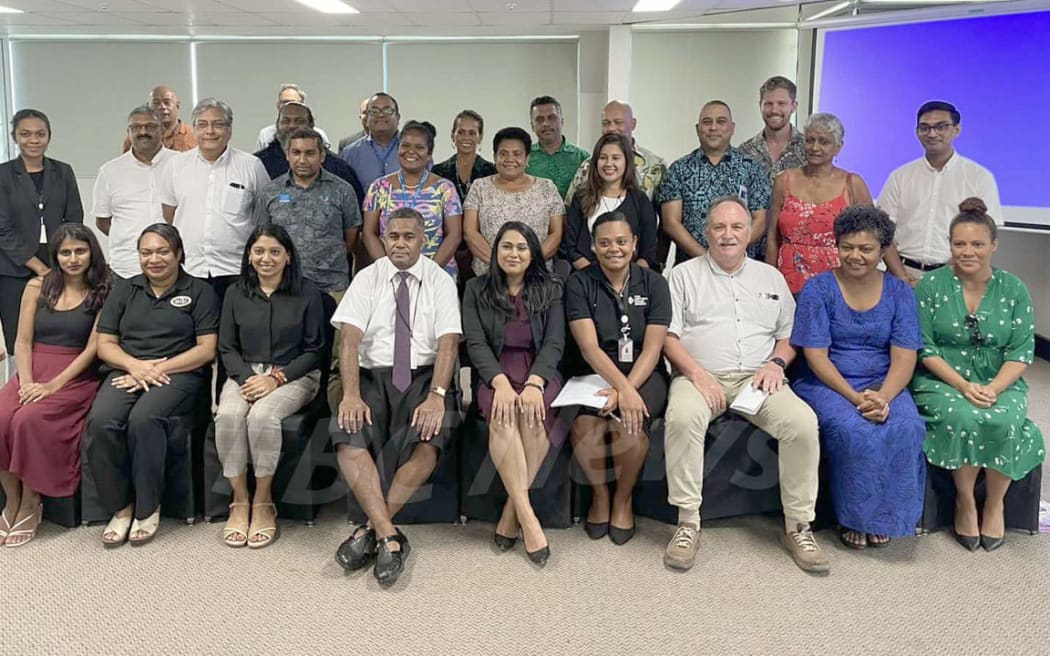By Kelvin Anthony
The Fiji government is signalling that it will not completely tear down the country’s controversial media law which, according to local newsrooms and journalism commentators, has stunted press freedom and development for more than a decade.
Ahead of the 2022 general elections last December, all major opposition parties campaigned to get rid of the Media Industry Development Act (MIDA) 2010 — brought in by the Bainimarama administration — if they got into power.
The change in government after 16 years following the polls brought a renewed sense of hope for journalists and media outlets.
- READ MORE: Repeal Fiji’s media law and start with ‘clean slate’, says CFL chief
- Other Fiji media freedom reports
But now almost 100 days in charge it appears Prime Minister Sitiveni Rabuka’s coalition is backtracking on its promise to get rid of the punitive law, a move that has been condemned by the industry stakeholders.
“The government is totally committed to allowing people the freedom of the press that will include the review of the Media Act,” Rabuka said during a parliamentary session last month.
“I believe we cannot have a proper democracy without a free press which has been described as the oxygen of democracy,” he said.
Rabuka has denied that his government is backtracking on an election promise.
“Reviewing could mean eventually repealing it,” he told RNZ Pacific in February.
“We have to understand how it [media act] is faring in this modern day of media freedom. How have other administrations advance their own association with the media,” he said.
He said he intended to change it which means “review and make amendments to it”.
“The coalition has given an assurance that we will end that era of media oppression. We are discussing new legislation that reflects more democratic values.”
And last week, that discussion happened for the first time when consultations on a refreshed version of a draft regulation began in Suva as the government introduced the Media Ownership and Registration Bill 2023.
The bill is expected to “address issues that are undemocratic, threatens freedom of expression, and hinders the growth and development of a strong and independent news media in Fiji.”
The proposed law will amend the MIDA Act by removing the punitive clauses on content regulation that threatens journalists with heavy fines and jail terms.
“The bill is not intended as a complete reform of Fiji’s media law landscape,” according to the explanations provided by the government.
No need for government involvement
But the six-page proposed regulation is not what the media industry needs, according to the University of the South Pacific’s head of journalism programme Associate Professor Shailendra Singh.
“We have argued there is no need for legislation,” he said during the public consultation on the bill last Thursday.
“The existing laws are sufficient but if there has to be a legislation there should be minimum or no government involvement at all,” he said.
The Fijian Media Association (FMA) has also expressed strong opposition against the bill and is calling for the MIDA Act to be repealed.
“If there is a need for another legislation, then government can convene fresh consultation with stakeholders if these issues are not adequately addressed in other current legislation,” the FMA, which represents almost 150 working journalists in Fiji, stated.
Speaking on behalf of his colleagues, FMA executive member and Communications Fiji Ltd news director Vijay Narayan said “we want a total repeal” of the Media Act.
“We believe that it was brought about without consultation at all…it was shoved down our throats,” Narayan said.
“We have worked with it for 16 years. We have been staring at the pointy end of the spear and we continue to work hard to build our industry despite the challenges we face.”
‘Restrictions stunts growth’
He said the Fiji’s media industry “needs investment” to improve its standards.
Narayan said the FMA acknowledged that the issue of content regulation was addressed in the new law.
But “with the restrictions in investment that also stunts our growth as media workers,” he added.
“The fact that it will be controlled by politicians there is a real fear. What if we have reporting on something and the politician feels that the organisation that is registered should be reregistered.”
The FMA has also raised concerns about the provisions in relation to cross-media ownership and foreign ownership as key issues that impacts on media development and creates an unequal playing field.
Sections 38 and 39 of the Media Act impose restrictions on foreign ownership on local local media organisations and cross-media ownership.
According to a recent analysis of the Act co-authored by Dr Singh, they are a major impediment to media development and need to be re-examined.
“It would be prudent to review the media ownership situation and reforms periodically, every four-five years, to gauge the impact, and address any issues, that may have arisen,” the report recommends.

But Suva lawyer and coalition government adviser Richard Naidu is of the view that all issues in respect to the news media should be opened up.
Naidu, who has helped draft the proposed new legislation, said it “has preserved the status quo” and the rules of cross-ownership and foreign media ownership were left as they were in the Media Act.
“Is that right? That is a question of opinion…because before the [MIDA Act] there were no rules on cross-media ownership, there were no rules on foreign media ownership.”
Naidu said the MIDA Act was initially introduced as a bill and media had two hours to to offer its views on it before its implementation.
“So, which status quo ought to be preserved; the one before the [MIDA Act] was imposed or the one as it stands right now. Those are legitimate questions.”
“There is a whole range of things which need to be reviewed and which will probably take a bit of time.”
Kelvin Anthony is RNZ Pacific lead digital and social media journalist This article is republished under a community partnership agreement with RNZ.


